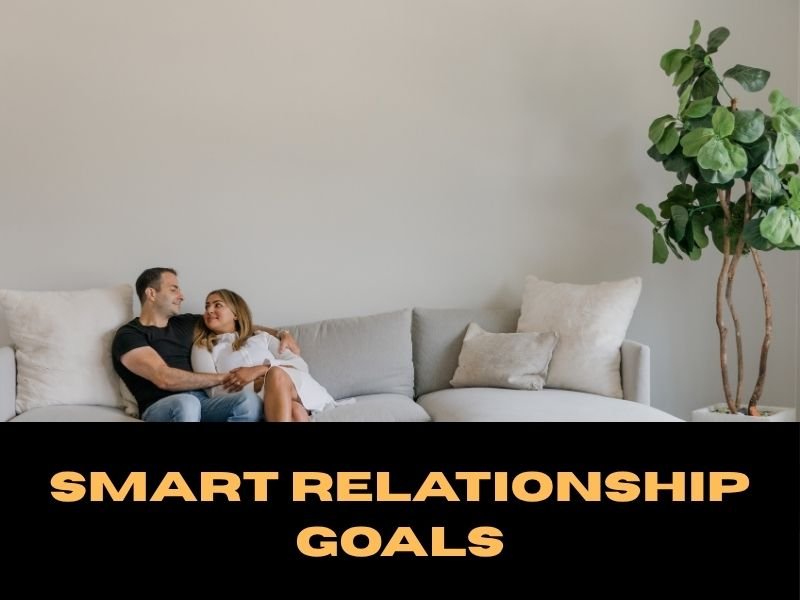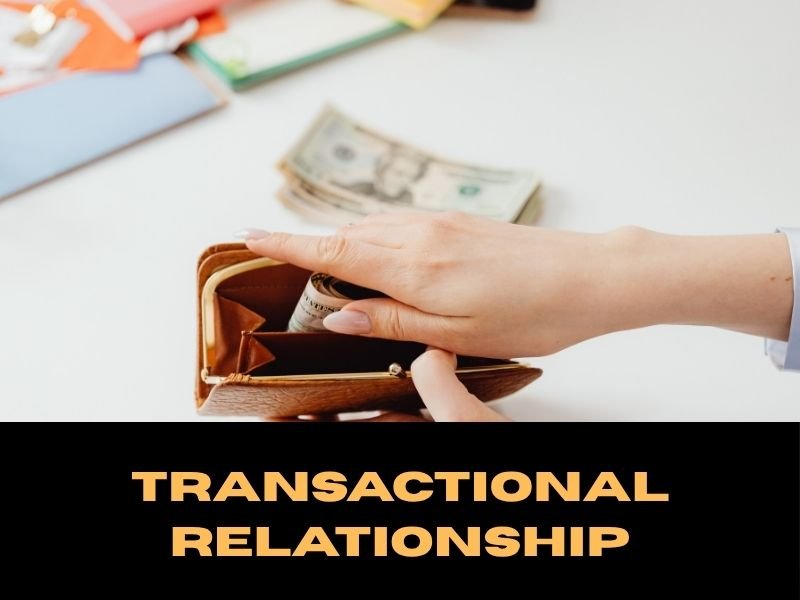In today’s fast-paced dating world, where swipes and situationships often take the place of real connections, you may set relationship goals. Here, we will help you set smart relationship goals. A lot of people feel emotionally drained, confused, or stuck in a cycle of short-lived relationships. This mess is not just annoying; it can change how you think about love, intimacy, and long-term commitment. It is no longer a luxury to have clear relationship goals; it is a must. This is true whether you’re looking for lasting love or trying to make an existing bond stronger. Without clear goals, dating turns into guesswork, marriage turns into work, and sex loses its emotional connection.
When you set relationship goals, you can love from a place of self-awareness, emotional maturity, and a long-term vision. It gives you the power to make better choices about who to date, talk to your partner more clearly, and connect with your emotional needs instead of just your temporary wants. In this guide, you will learn how to win at dating on purpose, how to make a marriage that lasts beyond the honeymoon phase, and how to have sex that shows trust, passion, and respect for each other. It’s time to stop going with the flow and start building the relationship you want, with confidence and clarity.
Dating Goals: Set the Foundation Before You Fall
It’s important to know what you want and what you won’t give up before you jump into a relationship. A lot of people date without being clear about their compatibility, values, and long-term goals, hoping that chemistry will make up for it. But the only way to succeed at dating is to be intentional from the start. Think about what kind of relationship you want to be in. Do I want a relationship that is serious or just for fun? Do our goals for life match up? It’s easier to ignore distractions and partners who aren’t emotionally available when you know where you’re going.
Having clear goals for dating also helps you feel good about yourself. Instead of getting emotionally involved with people who don’t put in the same effort or respect your standards, you’ll learn to stop, think, and keep your peace. If you like to have deep conversations but keep meeting people who only want to talk about the surface, that difference is a red flag that you can’t ignore. Like setting emotional boundaries, setting dating goals protects your energy and gets you ready for a relationship that is based on more than just attraction.
Marriage Goals: Thrive Beyond the Honeymoon Phase
Marriage is not the end; it is the start of a deeper, more complicated journey. When the honeymoon phase is over, real-life problems like money issues, parenting choices, personal growth, and emotional baggage start to put the relationship to the test. That’s why it’s so important to have clear goals for your marriage. Successful couples treat their marriage like a partnership that is always changing. They check in with each other once a week, agree on plans, and support each other’s individuality. They make plans not just for the wedding, but for the years to come.
Goals for marriage also help keep romance and teamwork alive. Couples who grow together don’t just live together; they also share dreams, habits, and emotional safety. For example, having a shared vision for how you deal with conflict or how often you intentionally connect (emotionally and physically) can help you be happy in the long run. For a marriage to work, both people need to keep learning about each other. That means being curious, respecting each other, and making each other feel seen. When you set clear goals for your marriage, it becomes more than just a legal formality.
Physical Intimacy Goals: Build Connection, Not Just Chemistry
In a committed relationship, physical intimacy is more than just touching each other; it’s based on emotional closeness, trust, and open communication. When you set intimacy goals, you see physical connection as a way to show love, not as an obligation. Couples who are doing well talk openly about their needs, wants, comfort zones, and emotional needs. This builds trust and makes sure that both partners feel seen, safe, and valued, even when things are hard, like when you’re sick, parenting, or stressed out.
Real closeness is different for each couple and is personal. For some, it’s about being close and touching; for others, it is about having deep conversations, giving each other their full attention, or doing kind things together. Partners who intentionally take care of each other’s emotional and physical comfort build a deeper, longer-lasting bond. Putting connection ahead of performance helps keep the passion and joy in the relationship. You can do this by showing affection, trying new ways to connect, or just being there. It’s not how often you do it that matters; it is how real and emotionally present you are when you do it.
How to Align Your Goals as a Couple Without Conflict
Every healthy relationship needs to have a shared direction, but it can be hard to find a balance between your own goals and those of the other person. The key is to talk to each other clearly and not compete with each other. Start by writing down your short- and long-term goals for your career, lifestyle, family planning, and even your emotional needs. Then, give your team time to talk about and share them. Listen actively, not to debate or defend, but to truly understand where your partner is coming from.
Compromise doesn’t mean giving up on your dreams. It means coming up with creative ways to make both partners feel heard and supported. One of you might want to travel, while the other wants to stay put. Can you make plans for short-term adventures while also working toward long-term goals? When couples put their goals in line with each other instead of their own, they fight less and respect each other more. Remember that having aligned goals does not mean you agree on everything; it is about making plans that you both want to follow.
Smart Dating Decisions: Avoiding Common Traps and Time Wasters
You need more than chemistry to get through the modern dating scene; you also need to be able to tell what’s what. To date smartly, you need to know what your values, limits, and deal-breakers are. It is easy to fall into common traps like dating for notuck, ignoring red flags, or spending time with someone who. Before you get emotionally involved, ask yourself these important questions: Is this person open to feelings? Do they value my time and plans? Are the paths our lives are taking compatible?
Time wasters often act charmingly but don’t follow through. These are the kinds of people who don’t want to put a name on the relationship, don’t try hard enough, or leave you feeling more confused than sure. Learn to spot patterns in behavior early on; actions speak louder than words. Dating healthily means not rushing into things and making choices that protect your energy and respect your future. When you date with a plan, you are more likely to find someone who respects your standards and keeps up with you.
Daily Habits That Deepen Connection: Steps To Set Smart Relationship Goals
A promise isn’t just something you say once; it is a choice you make every day by putting in the work. Simple, repeated actions that build trust and closeness over time are what make strong relationships work. These can be as simple as checking in with each other every day, doing something together every morning, or saying things that show how much you care. When couples do nice things for each other regularly, they say, “You matter, even when life is crazy.”
Being emotionally present is also a part of deepening connection. Five minutes of undivided attention to your partner every day can bring you closer together more than big gestures. It is about being there, even when it is hard. Celebrating small victories together, helping each other reach their goals, and being able to forgive each other when things go wrong all make the roots of commitment stronger. These habits build a love that feels safe, strong, and deeply connected over time.
Thriving in Long-Term Love: Balancing Growth, Passion, and Partnership
Long-term relationships shouldn’t feel like they are going nowhere. To thrive in love, you need to grow together emotionally, intellectually, and spiritually while keeping the spark that brought you together in the first place. Couples who are the healthiest see their relationship as a living thing that needs both care and challenge. This means helping each other grow, encouraging each other’s dreams, and being open to growing as a team. When both partners want to grow as people and as a couple, the relationship grows with purpose and passion.
You don’t have to keep the flame burning all the time, but you do have to be intentional about it. Surprise date nights, thoughtful compliments, spontaneous laughter, and a desire to learn more about your partner’s inner world all help keep the emotional excitement alive. In the same way, setting new shared goals, whether it is parenting, traveling, running a business, or just becoming better people together, keeps the feeling of being partners alive. Passion isn’t just wanting something; it is also about being seen, valued, and pursued, even after years of being together.
Red Flags vs Green Flags: Knowing When to Walk or Stay
Seeing red flags early on can save you from getting emotionally drained, and honoring green flags can help you find a fulfilling relationship. Red flags don’t always mean toxic behaviors like jealousy or control. They can also be small patterns like always avoiding things, not taking responsibility, or being emotionally unavailable. If people don’t respect your values or you feel more anxious than safe, it is a clear sign that something deeper needs to be looked at. Leaving is not giving up; it’s taking care of your peace of mind and self-worth.
On the other hand, people often miss green flags because they feel safe, calm, and sometimes even “too easy.” A strong bond is shown by things like mutual respect, being open about your feelings, clear communication, and doing what you say you will do. A partner who listens, says they are sorry, celebrates your successes, and lets you feel your feelings is a good one. Don’t ignore these signs that you are emotionally mature. Knowing how to tell red from green will help you choose love wisely, not just with your heart.
Conclusion
To win at dating, marriage, and intimacy, you don’t have to be perfect. Instead, you need to become more emotionally clear, consistent, and connected. Whether you’re just starting to date or are trying to figure out how to make a long-term commitment work, the real “relationship goals” are based on empathy, good communication, and a shared purpose. You don’t get confidence from playing games or looking for approval; you get it when you know your worth and choose partners who respect it.
Love that matters is not just about the sparks; it is also about being there when it counts, dealing with problems with grace, and growing together through the seasons. You should be in a relationship where you feel safe, seen, and loved. So, whether you are setting limits in dating, getting closer in marriage, or finding emotional closeness again, remember that love isn’t luck; it is something you work on every day. Make yours count.







